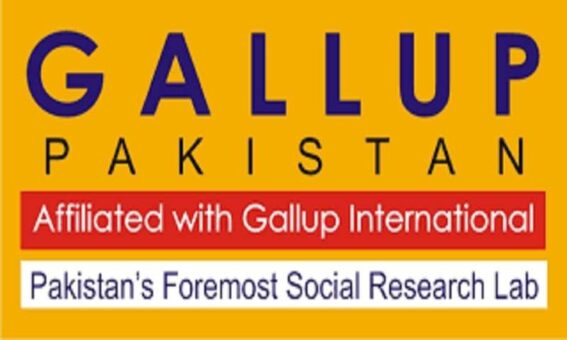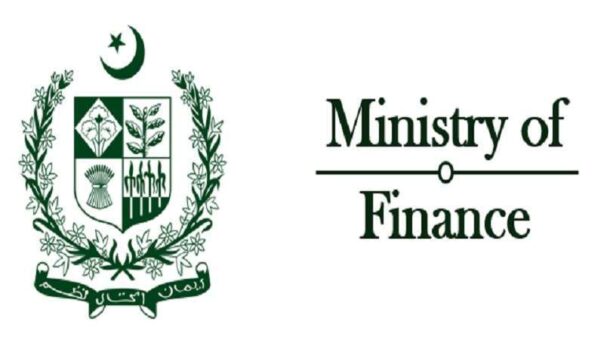Karachi, July 25, 2024 – Business owners across Pakistan have expressed heightened pessimism about their future prospects, citing continued political turmoil and a new tax-heavy budget as major concerns, according to a recent Gallup Pakistan survey.
(more…)Tag: Gallup Pakistan
-

Gallup Survey Finds Improved Business Confidence on New Govt
Karachi, April 5, 2024 – A survey conducted by Gallup Pakistan has unveiled a notable uptick in business confidence attributed to the efforts of the new government in Pakistan towards economic revival.
(more…) -

Gallup Pakistan Survey Reveals Growing Business Confidence
Karachi, December 29, 2023 – The latest Gallup Pakistan survey indicates a positive shift in business confidence regarding the economic climate of Pakistan.
(more…) -

Pakistan Rejects Gallup Business Confidence Survey
Islamabad, September 6, 2023 – Pakistan has officially contested the findings of the Gallup Business Confidence Survey, which was recently published in a local financial daily newspaper.
(more…) -

Pakistan Businesses Express Concerns Over Potential Default, Gallup Survey Reveals
Karachi, September 04, 2023 – A recent survey conducted by Gallup Pakistan has revealed that a majority of businesses in Pakistan are deeply concerned about the country’s potential default.
(more…) -

Pakistan business confidence index drops to lowest level
KARACHI: A survey conducted by Gallup Pakistan revealed that business index has dropped to the lowest level due to political and economic uncertainties.
According to Gallup Pakistan survey conducted in the last quarter of 2022 for the Gallup Business Confidence Index, 65 per cent of business owners believe their businesses are facing bad conditions.
Industrial machines businesses are doing the best out of all types of businesses, with 75 per cent of them believing that conditions are good. Cloth and garment shops are experiencing the worst level of confidence, with 81 per cent of them saying business conditions are bad.
Findings of the survey show the Net Future Business Confidence score has worsened by 50 per cent since the beginning of 2022 and is now at -10 per cent.
Compared to earlier this year, the number of businesses saying the country is headed in the wrong direction has gone up by 32 per cent.
Less than 15pc of businesses in Punjab, Sindh and Khyber-Pakhtunkhwa believe that the country is headed in the right direction.
A quarter of businesses in Balochistan believe the same.
Similar to the findings of the survey conducted in the first quarter of 2022, inflation remains the most-cited problem that businesses would like the government to solve by the end of this year.
As many as 72 per cent of the businesses surveyed reported experiencing loadshedding every day.
A considerable increase in the number of businesses experiencing loadshedding was witnessed in the fourth quarter. About 19 per cent of the businesses that reported facing loadshedding within a day experienced it for two hours, the survey showed.
As many as 81 per cent of the businesses said they do not believe the court system is fair, impartial and uncorrupted versus 7 per cent in the first quarter of 2022. More businesses from Balochistan disagree with the idea that the court system is fair, impartial and uncorrupted than any other province, survey results showed.
One-quarter of the businesses surveyed reported their establishment was visited by tax officials, down 12 per cent from the previous survey.
A sample of more than 700 business owners and managers across Pakistan were asked how well their businesses were doing. After Covid-19 peaked, businesses started to express greater confidence. But this confidence plummeted between the beginning and the end of 2022.
“This sudden change, and a 63 per cent fall in the Current Business Situation score, may be due to the continuous political instability over the year,” it said.
The survey asked business owners which problems were affecting their businesses considerably. Besides inflation, “customer shortage” was a problem that 8 per cent of them faced. High taxes were also perceived as a problem by 4 per cent of businesses.
“Gallup Business Confidence Report for the fourth quarter of 2022 paints a bleak picture. The index values are the worst since Gallup started the project in 2019, which includes Covid-19 times,” said Bilal Ijaz Gilani, executive director of the Gallup Pakistan and chief architect of the Gallup Pakistan Business Confidence Index.
“The report comes after Pakistan faced the worst floods in decades. The business community awaits strong and decisive steps by the government,” he added.
-

Consumers remain optimistic despite adverse coronavirus impact: survey
KARACHI: Despite very difficult six months marked by COVID-19 outbreak in the country, a large portion of consumers remain optimistic that the economic condition of the country will improve in coming days.
Bilal Ijaz Gilani, Executive Director Gallup Pakistan said on Tuesday while launching of a survey report.
“Pakistanis are generally optimistic people and the current CCI report reflects the same. Despite the very difficult 6 months marked by the COVID-19 outbreak in the country, a large proportion of consumers remain optimistic that the economic conditions of the country will improve in the coming days,” he said.
Dun & Bradstreet Pakistan and Gallup Pakistan have launched their inaugural report titled ‘Pakistan Consumer Confidence Index (CCI)’.
The CCI report has been developed by assessing Consumers’ Confidence about the economy as well as their personal financial situation.
The Index encompasses covers four key parameters i.e., Household Financial Situation, Country’s Economic Condition, Unemployment, and Household Savings.
The Index is a reflection of ‘Current Sentiments’ (economic changes felt in the last six months), as well as ‘Future Expectations’ (changes expected for next 6 months) of consumers across the country.
Nauman Lakhani, Country Manager of Dun & Bradstreet Pakistan stated, “We envisage this report to be informative and useful for Policy Makers, Development Financial Institutions, Small & Medium Enterprises, Large Private Sector Companies as well as Regulators and Research & Educational Institutions in Pakistan. It would be especially relevant for Industries directly or indirectly serving consumers and help them understand the pulse of the market.
“Government departments keen to understand the sentiments of citizens across the country (especially in the COVID impacted situation), should find it especially interesting and insightful.”
Bilal Ijaz Gilani, Executive Director Gallup Pakistan said that the recent economic indicators including figures on exports, remittances, and inflation point to short term economic stability with a 4-5 percent rise in GDP growth rate in the next 2 years.
However, if there is anything that the global COVID-19 pandemic has taught us is that projections are mere projections and, in an interconnected world, there are hardly any constants! Reports like the Dun & Bradstreet and Gallup Pakistan CCI provide an early warning barometer in these turbulent times and can help decision makers navigate the rather unstable business environment in the country.”
The first survey was conducted face to face with 2,041 respondents during Feb and early March 2020 (referred to as ‘Feb Survey’ before the COVID-19 pandemic fully impacted Pakistan.
The second survey was conducted telephonically with 1,500 respondents during Jul-Aug 2020, this is referred to as ‘Aug Survey’.
The Consumer Confidence Index ranges from 0 to 200, with 100 as the neutral value. A score of less than 100 indicates pessimism.
The Consumer Confidence Index was 79.1 points in Aug Survey, compared to 79.0 points in Feb Survey. Thus, the overall consumer confidence in Pakistan has remained pessimistic in both the surveys, and was pessimistic even during pre-COVID times.
Sentiments about the current situation are more negative in Aug Survey due to the impact of COVID-19. This is indicated by a decline of current CCI by 12 percent to 60.7 in Aug Survey, compared to a score of 69.1 in Feb Survey.
Unemployment situation in the country seems to be the most impacted as a result of COVID-19. 4 out of 5 consumers feel that unemployment has increased/ increased a lot compared in the last 6 months (pre-COVID situation).
Consequently, 51 percent of the respondents expressed concern that their Household Financial Situation had worsened in the last 6 months.
On the back of deteriorating employment opportunities, and household financial situation, increasing prices of daily essentials is a key concern. 2 out of 3 consumers surveyed felt that prices of daily essentials have increased significantly in the last 6 months.
Current CCI declined by 7 percent and 14 percent in Balochistan and Punjab respectively, while KPK witnessed the worst decline in consumer sentiments by 33 percent. In Sindh, consumer confidence Index was 60, indicating high pessimism.
However, this was an improvement by around 10 percent from Feb Survey indicating that pessimism was very high in Sindh even during pre-COVID times, and the situation is marginally better now.
Due to early signs of economic rebound seen in Pakistan during Jul-Aug 2020, respondents are less pessimistic about the future in all the 4 major provinces in which the survey was conducted. Future expectations of the consumers (Future CCI) improved by 9.5 percent to 97.5. This improvement can be largely attributed to consumer optimism relating to their household financial situation and savings in the next 6 months compared to the current situation.
However, future CCI is still marginally in the pessimistic range as 55 percent respondents feel that there will be fewer jobs in the next 6 months and 3 out of 5 consumers opined that the country’s economic situation will remain the same or further worsen.
On the whole, while the current situation has dampened the spirits, consumers all across Pakistan relatively more optimistic and upbeat for the economic situation to improve, than they were six months earlier.
Bilal I. Gilani, Executive Director of Gallup Pakistan added that “Across demographics, current sentiments are low as was expected due to the impact of the COVID-19 situation. However, with the rapid decline in cases since mid of June, consumers are less pessimistic about the short-term outlook for the next 6 months. In particular, we noticed that optimism is high amongst females and urban respondents.”